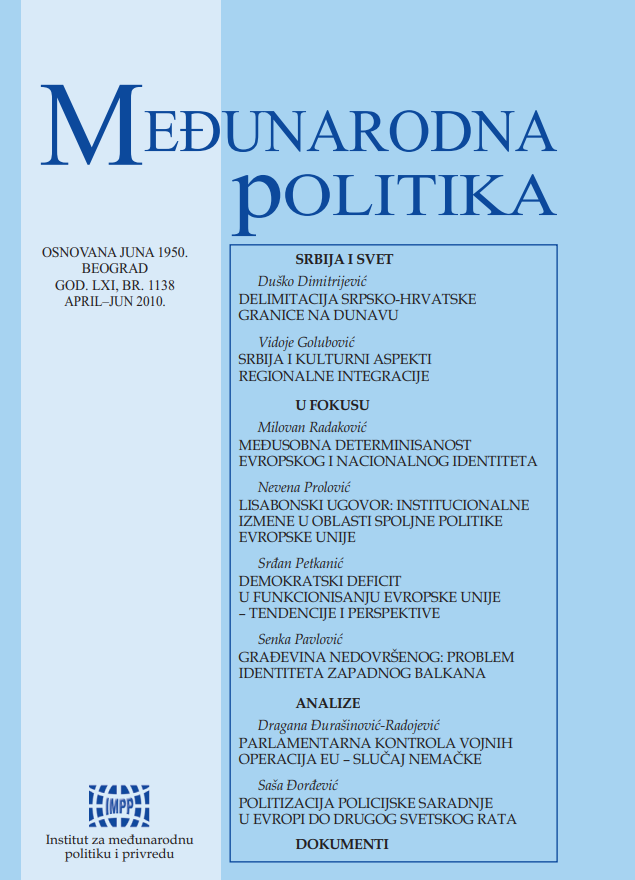Međusobna determinisanost evropskog i nacionalnog identiteta
identity; people; nations; state; European Union.
Author(s): Milovan RadakovićSubject(s): International relations/trade, Politics and Identity
Published by: Институт за међународну политику и привреду
Keywords: identity; people; nations; state; European Union
Summary/Abstract: By making decisions on the part of the Council, Parliament, Commission and the Court of Justice as well as by supporting transnational inter-governmental and non-governmental networks the EU is taking an important role in the identity transformation in Europe. One aspect is the fact that national identities are becoming more comprehensive, regional more pronounced and social groups direct their efforts towards European institutions. The EU and the European Council strive to protect languages of minorities. National identities are deeply rooted in the basic structure and functioning of the EU. This also relates to daily activities of institutions as well as to special events as is, for example, signing of new treaties. The integration process does not make national identities more inclusive. Integration also redirects regional identities towards the European level and makes them more controllable by institutional structures that direct them from multiple levels. Identities are thereby overlapped more often than they are antagonised. The question is whether this implies weakening of national identities or the emergence of a new form of post-national identity in the EU.
Journal: Међународнa пoлитика
- Issue Year: 61/2010
- Issue No: 1138
- Page Range: 43-61
- Page Count: 18
- Language: Serbian

